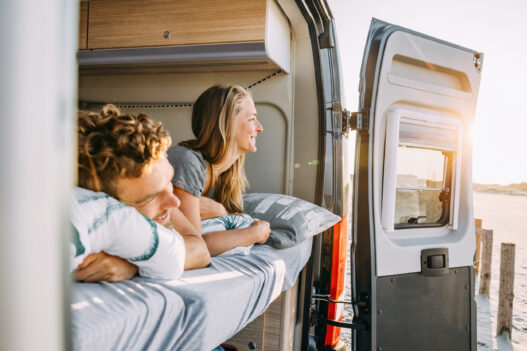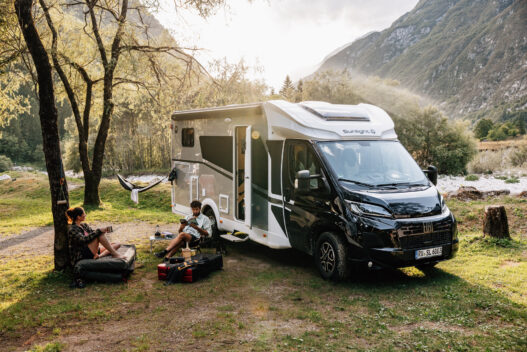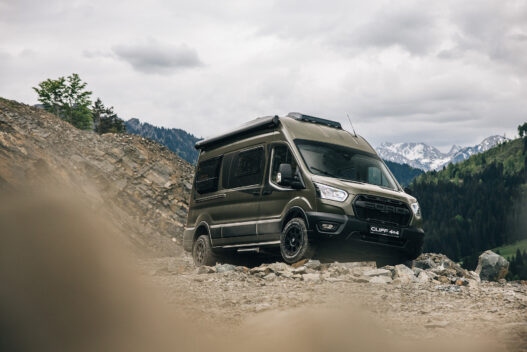
German motorhome brand SUNLIGHT presents six essential wild camping regulations and tips to minimize our impact on nature and to ensure we will be able to enjoy the magical (and legal) wild spots in the years to come.
1. Check the regulations
Every country has its own wild camping regulations: in some countries (e.g. in Slovenia or the Scandinavian countries) wild camping is more or less tolerated, in other places it is advised to seek the landowner’s permission and countries like Spain or Italy are rather strict with their bans. So, before embarking on your camping trip take a look at your chosen destination and learn about the local regulations (for example on caravanya.com or on the carvanya app). MIND: In protected areas or national parks and preserves wild camping is strictly prohibited!
2. Use digital helpers
We live in a digital world, and it seems there is hardly any challenge that cannot be solved with an app – and fortunately that’s also the case for legal camping spots. Park4Night is a free app (available in six languages) and one of the most popular. Besides listing parking spots (free as well as charged), it integrates useful info, experiences, ratings, and pictures by other campers. Another helpful online platform is Campspace, a sort of Airbnb for campers: here, people from around the globe list their private property for campers to rent – from yards to gardens or land.
3. Respect the wildlife
It’s the privacy and remoteness that makes wild camping such a unique, special experience. So, let’s get out the beer and turn up the music. Please don’t! Nothing could be more disrespectful and inappropriate. You are a guest in the habitat of wild animals – and it’s your responsibility to respect and protect it. Preserve the peace and quiet: avoid loud noises, keep your voices down and let nature’s sounds prevail. Preserve your voice for singing along to the coolest playlists on the road.
4. Leave no trace
One of the major concerns why wild camping is so often targeted is that more and more beautiful places are trashed. Although the rule is super simple: leave the place in the same condition you found it – or even cleaner. Pack in all your trash, leftover food and litter and dispose it properly. The same applies for wastewater – improper disposal of wastewater is a major environmental issue, and you must expect a heavy penalty in most countries.
5. Be romantic without the fire
Campfires seem to be a timeless camping ritual – we all love to close the day by chilling around the fire. BUT one of the most important rules of wild camping is to never light an open fire if not on a defined campfire spot. There is a high risk of it getting out of control and it also scares off animals, leaves burnt ground where once plants have grown. In the wild you should also refrain from getting out the grill. But, hey, stargazing is romantic, too – get an app and learn about the planet, stars, and constellations.
6. Mind your business
We’re all human – and as humans we have to relieve ourselves. And Mother Nature seems a, uhm, natural space to do so. However, spots behind rocks or big trees turn into popular toilets discernible by the piles of toilet paper. Did you know that toilet paper takes months to decompose – depending on the conditions sometimes even years?! Human feces also do not disappear in a day. Plus, they contain bacteria, viruses and parasites that can harm the eco system. It might seem the most natural business – but it’s no good for nature. The rule is: no toilet on board, no camping in the wild! There are numerous portable solutions for small vans. And, of course, all SUNLIGHT models are equipped with toilets.
19.06 MB
Press Contact
Sunlight GmbH


